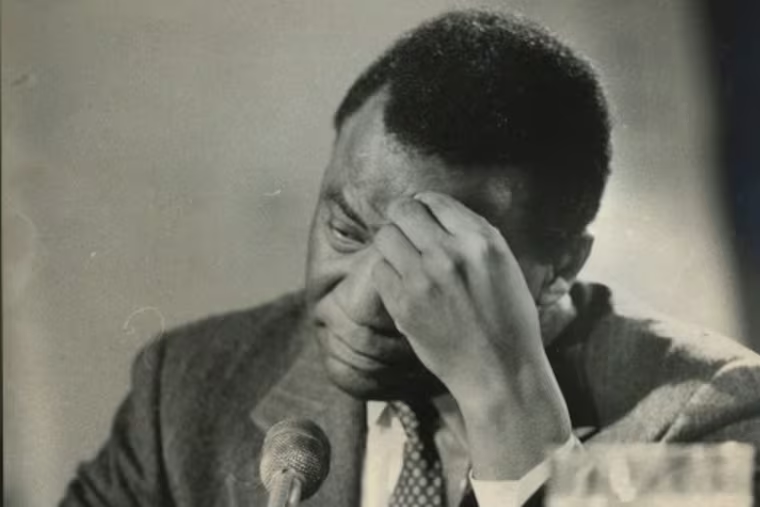Former Mayor W. Wilson Goode Sr. says he’ll address the MOVE bombing on the 35th anniversary of the tragedy
Whether Goode has adequately apologized for the incident is a matter of debate.

As next week’s 35th anniversary of the MOVE bombing approaches, former Mayor W. Wilson Goode Sr. says he plans to discuss the conflagration that killed 11 people — including five children — and left a city block burning, wiping out more than 60 homes.
Goode, Philadelphia’s first African American mayor, who served from 1984 to 1992, said Friday that he had written an op-ed about the bombing that will be published by the British newspaper the Guardian on Sunday, and will also make a statement on WURD at 5:30 p.m. Wednesday. He said he will make no other public comments about the bombing at this time, and declined to characterize his planned statements.
MOVE was often described at the time as a radical back-to-nature group based in West Philadelphia. Its members all took the surname Africa.
MOVE clashed with police on multiple occasions, including a standoff that led to the fatal confrontation on May 13, 1985, when a police helicopter dropped a bomb onto the group’s building on the 6200 block of Osage Avenue in Cobbs Creek.
Over the years, Goode has spoken about the fire and its aftermath.
“There is not a day that goes by that I don’t think about it, and I grieve deeply for the lives lost and the houses destroyed,” he told the Philadelphia Tribune in 2015. “Everybody on that site worked for me, therefore I’m accountable for whatever happened.”
With the anniversary days away, former Gov. Ed Rendell, who as district attorney prosecuted MOVE members, said Friday he now regrets the severity of the sentences he pursued for those who were not leaders of the group.
Critics say Goode has never sufficiently owned up to his role in one of the darkest chapters in the city’s history. On Friday, he said he has apologized on at least three occasions.
The most recent time that Goode said he publicly apologized for the bombing was at a 2018 ceremony naming a street after him that was attended by demonstrators protesting his handling of the incident.
“I refuse to be defined by one day in my life,” he said then. “I stand on my record. I stand on what I’ve done.”
Turning to the protesters, he then acknowledged that he was at fault.
“I was responsible. I was responsible. I was responsible,” he said. “I’m going to man up for what happened on May 13. But you cannot hold me accountable for everything that has happened in this city.”
In the immediate aftermath of the incident, Goode offered a mixed response, defending his record while also apologizing.
“I said on two occasions today that it was very sad, that it was very depressing, and that I wanted to extend my prayers to all those persons who lost those homes,” Goode said at the time after being asked if he had apologized. “Now, I’m not sure I spelled the word S-O-R-R-Y, but I don’t know how I could express that differently. Of course we’re sorry. Of course we wish we could take everything back.”
Around the same time, however, he said that even if he could do it over, he would make the same decision “because I think that we cannot permit any terrorist group, any revolutionary group in this city, to hold a whole neighborhood, a whole city, hostage.”
Rendell, in an interview, said he had been in talks with Goode and former members of the group about how to recognize the anniversary. The MOVE members want City Council to issue an official apology, but Rendell said he believed that was unlikely. The talks fell apart without a final plan, he said.
Councilmembers said Friday they were in discussions about whether to acknowledge the anniversary at their planned virtual meeting Thursday.
Rendell said that while Goode and other city officials made serious mistakes on the day of the bombing, he doesn’t believe they intended to kill anybody.
“They were guilty of incredible stupidity, incredible stupidity,” said Rendell, who succeeded Goode as mayor. “He made a terrible mistake, but he is a good human being.”
For his part, Rendell said that he now regrets his handling of the prosecutions of some of the MOVE members, nine of whom were convicted on murder charges for the death of Police Officer James Ramp in a 1978 standoff that presaged the bombing seven years later. MOVE has maintained that Ramp was shot accidentally by another officer.
If he could do it over, Rendell said, he would have offered plea deals that included less severe sentences to those who were not leaders of the group.
“I followed the law, but the prosecutor always has the discretion to use their judgment,” Rendell said. “For what they did compared to what some other people do in Philadelphia, they served far too much time.”
Staff writer Chris Brennan contributed to this article.